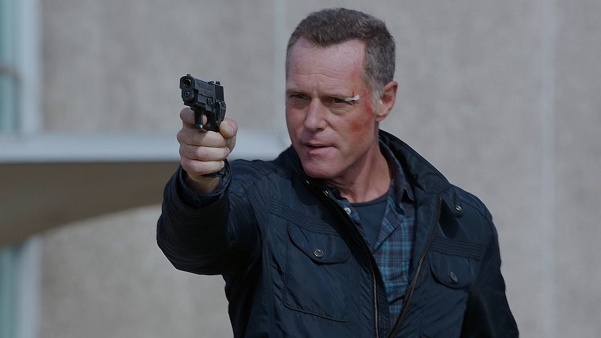Everyone thought it was over. That Hank Voight had finally taken down the most dangerous man to ever walk the halls of Chicago P.D. But what if death wasn’t the end?
The final moments of Season 12 were nothing short of explosive. With his unit on the verge of collapse and no legal way forward, Voight made a chilling choice: he manipulated a young man into executing the Deputy Chief of Police, Richard Reid — a man who not only weaponized his badge but turned Voight’s own tactics against him. This wasn’t just a takedown. It was personal. It was war.
And Voight won. Or did he?
Reid, for all his corruption and manipulation, left behind something far more insidious than a paper trail — he left behind his voice in Voight’s mind. As Season 13 looms, that voice refuses to fade. It whispers doubts, accusations, and the ultimate condemnation: “You’re worse than me.” A line Reid delivered with venom moments before his death — one that has burrowed deep into Voight’s conscience.

For years, Voight ruled the Intelligence Unit with absolute authority, never hesitating to bend the law when justice demanded it. But the cost has been steep. Jay Halstead and Hailey Upton — once his closest allies — walked away, disillusioned by the very methods that once defined the unit. ASA Nina Chapman, who once believed in his potential to change, now stares at him with bitter disappointment. And somewhere inside, Voight knows: he may have saved his team, but he may have lost himself for good.
What makes Reid different from every other villain Voight has faced — from cartel leaders to serial killers — is that Reid was one of them. A man in uniform. A monster shielded by the system. He didn’t just commit crimes; he engineered power plays that used both cops and criminals like pawns on a board. In many ways, Reid was what Voight could have become — and perhaps still is.
Now, with Season 13 on the horizon, Chicago P.D. is preparing to explore a new kind of battlefield: Voight’s mind.
Will Reid return in physical form? Unlikely. But his ghost — or at least the psychological weight of his words — is poised to become Voight’s greatest adversary yet. Imagine this: mid-investigation, a sudden hesitation. A decision second-guessed. A flash of Reid’s sneer in Voight’s thoughts. Not as a hallucination, but as a moral reckoning.
This isn’t just about one case anymore. It’s about identity. About whether Voight can ever truly leave behind the man he used to be. Or if, in the end, the difference between Voight and Reid was nothing more than timing and circumstance.
The question is no longer “Can Hank Voight win?” It’s “Who is Hank Voight now?”
Because when the villain you killed becomes the voice in your head… how do you know you haven’t become the villain yourself?
Is Voight still the hero Chicago needs—or the threat it never saw coming?





